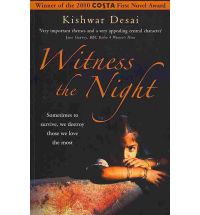Edwidge Danticat is probably one of the best known women authors of Caribbean descent. Last year I read her debut  novel Breath, Eyes, Memory, published in 1994 (it was chosen for the Oprah Book Club four years later). The book tackles race and gender issues in a way that reminds me of Toni Morrison, one of my favourite writers. Danticat’s writing is uncomplicated but evocative and she doesn’t flinch from showing how women are subjected to distress and pain.
novel Breath, Eyes, Memory, published in 1994 (it was chosen for the Oprah Book Club four years later). The book tackles race and gender issues in a way that reminds me of Toni Morrison, one of my favourite writers. Danticat’s writing is uncomplicated but evocative and she doesn’t flinch from showing how women are subjected to distress and pain.
So I was excited by the prospective of reading Brother, I’m Dying, Danticat’s family memoir that tells the story of her preacher uncle, Joseph. I wasn’t disappointed. I was immediately drawn in and ended up caring very much about the people she depicts.
Early in Danticat’s life her father and mother left Haiti for a new life in New York. She and her brother were left in the care of her Joseph and his wife. While this was a bewildering situation for a young child, it’s obvious that she came to love her uncle nearly as much as she loved her father; her affection and respect for him is palpable.
Through the book Danticat skillfully interweaves incidents in Haiti’s turbulent political life with family stories. She doesn’t go overboard on this – she lets the reader come to their own understanding of what life must have been like in such unsettling circumstances. She does the same when she recounts the end of Joseph’s life. He died alone, at the mercy of an all too often inhumane and bureaucratic system. But Danticat doesn’t tell us that explicitly. She just quotes from the official records that relate to his death, a cold list of facts that underline the sadness of an old man dying without his family around him. It’s an incredibly powerful way of conveying both her grief and her anger at what happened to Joseph, which moved me to tears.




 Last week I read an excellent book called Witness the Night, by Kishwar Desai. Set in 21st century India, it’s part murder mystery, part social critique. Instead of a police detective, the sleuth in this story is an unconventional social worker who gets herself involved in a wealthy family’s attempt to promote an all-male progeny. I had the good fortune to have the opportunity to read this novel for the next edition of Belletrista.
Last week I read an excellent book called Witness the Night, by Kishwar Desai. Set in 21st century India, it’s part murder mystery, part social critique. Instead of a police detective, the sleuth in this story is an unconventional social worker who gets herself involved in a wealthy family’s attempt to promote an all-male progeny. I had the good fortune to have the opportunity to read this novel for the next edition of Belletrista.